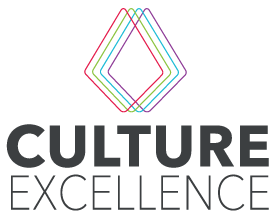Case Study: Abela & Co
Established in 1967, Abela & Co. works with clients in a vast range of industries such as oil and gas, food and beverage retail management, banqueting and outdoor events and produces an impressive 120,000 meals every day.
Needless to say, food safety and quality is paramount in keeping such a successful operation going and with that in mind the company has been participating in our Culture Excellence program since 2015.
Abela & Co. has improved on their survey scores year on year, which of course is no accident, as it takes both dedication, time and management from the leaders of the organisation. Assistant Vice-President Nancy Nouaimeh elaborated:
"We are very proud of what we have achieved. It was a confirmation that we are on the right track. For years we have been doing a lot of work, particularly in relation to food safety, and the results have confirmed that the initiatives we have in place were building a strong foundation and leading to higher levels of food safety and quality."
Abela & Co. has taken 3 key learnings from the Culture Excellence assessment:
1. A quantification of Abela & Co.’s achievements and efforts in food safety
As we always say, what you cannot measure you cannot change! Using the Culture Excellence assessment tool has allowed Abela & Co. to create a culture language that isn’t based on abstract concepts but concrete numbers that everyone in the organisation, regardless of level or nationality, can understand and relate to.
2. The increased maturity of company culture over time
Since Abela & Co. has been doing the assessment for a number of years, they have also been able to measure the impact of the different initiatives taken to improve their safety and quality culture.
3. Differences depending on employee level
Culture isn’t just what management is telling its employees – if the message isn’t received or respected by the lowest ranking members of staff, it will affect your culture negatively. And how can you target the various groups in your organisation if you don’t have data about what they’re really thinking and doing? At Abela & Co. the company was surprised to find out that their training and communication scores, while still in line with the industry averages, scored lower. And for a company that doesn't want to be average, this didn't sit well. Abela's Food Safety Manager Raseena P. T. elaborated:
"We were thinking that we were doing enough training for our employees and they got it the right way. Surprisingly in the survey, we scored low in the enjoyment part of training. At the operator level, the employees’ background, the delivery of training in one stretch, and language, all of those could have been issues. So it was an eye opener for us to look into this more precisely, and to break down the contents to match the understanding level of the attendees"
Focus areas
Abela & Co. were able to quickly spot the differences between managers, supervisors and operators, which allowed them to pinpoint the specific groups to work with to improve their scores in needed areas. To do so, the company implemented new training activities that took into account different language requirements of the employees. They also made use of more visual training methodologies and focused on improving team collaboration. Unsurprisingly, already in their second assessment year Abela & Co. saw the score for Training and Communication shoot up.
In short, the company implemented data driven strategies in focus areas. This is an excellent way to use your culture score results and something we recommend to all of our clients. This can be done, like at Abela & Co., focusing on four key strategies:
Using the data for internal analysis and communication
Developing focused action plans
Talking about culture in facts and figures
Using the data to drive improvement
Understanding the importance of culture and how it effects your business remains an integral part of building a successful organisation. Abela & Co. have been leaders in their field for more than half a century, and it is no surprise that their focus on culture goes hand in hand with their success as an organisation. As Raseena P.T. so eloquently put:
"We aim no longer to just adhere to regulatory requirements or basic standards; we are much above that. Now it’s about keeping that culture going and striving for excellence. We want our employees to feel empowered and confident with their knowledge, able to express their ideas and suggestions, and to be proud of what they are doing."






